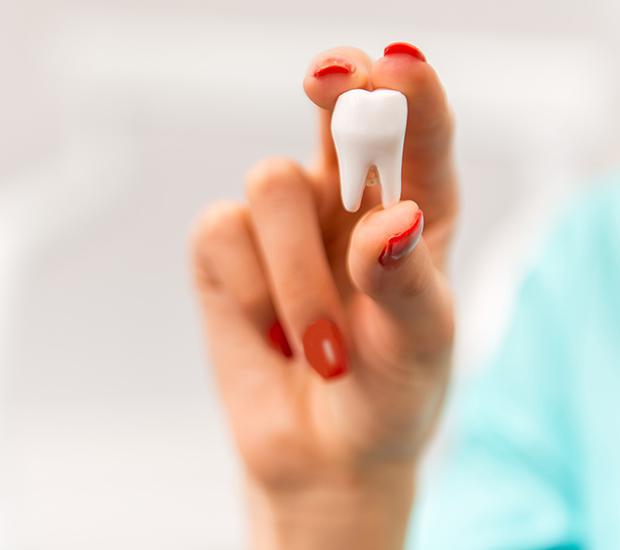Why do we make an effort to care for our teeth on a daily basis? It’s easy to see how cavity prevention is a beneficial side effect of good dental hygiene. Brushing and flossing are two simple ways to help prevent gum disease.
You may be shocked to learn that your treatment strategy for dental health is important because it affects your general health. When you clean your teeth, you defend yourself against potentially dangerous oral bacteria. You might also preserve your general health by preventing issues such as tooth decay and gum disease. Here are more oral healthcare tips and interesting facts for you to consider before scheduling your next visit.

What Is The Link Between Oral And Overall Health?
The consequences of untreated oral health problems can be severe. Unrepaired cavities might lead to a tooth infection, which may result in facial swelling and discomfort. If not treated, the condition can cause a fever.
Bacteria that have accumulated beneath your periodontal tissues may spread to different sections of your body and generate new issues if you have gum disease that is not being managed. If you have problems with poor periodontal health, you may be at greater risk of endocarditis or other heart conditions.
Before you go to sleep, brush your teeth.
Your body limits its saliva production while you sleep. What does this mean for your mouth health? You are not able to clean away germs when less saliva is available, allowing harmful bacteria to accumulate overnight. You may be able to avoid dental issues by cleaning your teeth thoroughly before going to bed. You can remove germs and food particles from your teeth before they cause problems.
Bushings before bed will allow you to cleanse all of the parts of your smile and remove any harmful germs, as well as any food particles that may have remained from that day. To ensure you don’t miss any of these noxious chemicals, floss to remove them from the gaps between your teeth.
Set a timer the next time you brush.
Set the timer on your phone for two minutes, and make sure you spend all of that time brushing your teeth. Two minutes will give you ample time to get into all of the nooks and crannies of your smile. Making this change will prevent you from needing a dental filling placed in an area that is harder to reach.
Regularly Replace Your Toothbrushes.
The effectiveness of your toothbrush will fade after three months if you keep using the same one. If you refuse to change your toothbrush for a long time, the bristles may become worn down and ineffective. If you notice a change in their condition before the three-month mark, an early replacement is advised.
Don’t forget your tongue.
Your tongue’s surface may also be coated with plaque. Not only might this lead to unpleasant breath, but it can also cause other oral health issues. Every time you clean your teeth, gently brush your tongue also.
Eat crunchy fruits and vegetables
Eating fresh, crunchy fruits and vegetables not only contains healthy fiber it’s also the best choice for your teeth. Carrots and celery, for example, stimulate the saliva flow, which is part of your mouth’s natural plaque and bacteria removal mechanism. Carrots and celery are not only high in beta-carotene, which is converted to Vitamin A and helps the formation of teeth, but they’re also high in vitamin C.
Limit sugary and acidic foods or drinks
Sugar is metabolized in the mouth, resulting in the formation of acid, which can erode your teeth’s enamel. The sugars found in fruit are what causes tooth decay. Fruits, teas, and coffee all contribute to the loss of tooth enamel on account of their acidity. While you don’t need to avoid such foods altogether, it’s a good idea to be cautious.
See your dentist at least twice a year
Your daily habits are critical to your general oral health. Even the most diligent brush and flossers, though, require dental visits on a regular basis. You should visit your dentist at least twice a year for cleanings and checkups. A dentist can remove calculus as well as search for cavities, and they will also be able to identify possible problems and suggest methods of preventative treatment.
Some insurance providers, in fact, reimburse for more frequent dental checkups. If this is the case for you, use it to your advantage. If you have a history of dental problems, such as gingivitis or recurrent cavities, asking your insurance provider could help.
Schedule Your Next Dental Visit Today!
If you’re due for a cleaning or a checkup, don’t wait. Schedule an appointment with our dentist today. Oral healthcare is important for maintaining your overall health, so be sure to take care of your teeth and gums and see the dentist regularly to ensure a healthy smile for years to come!
Call us at (915) 263-8333 or click the button below to schedule your next dental exam and teeth cleaning!